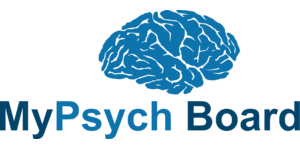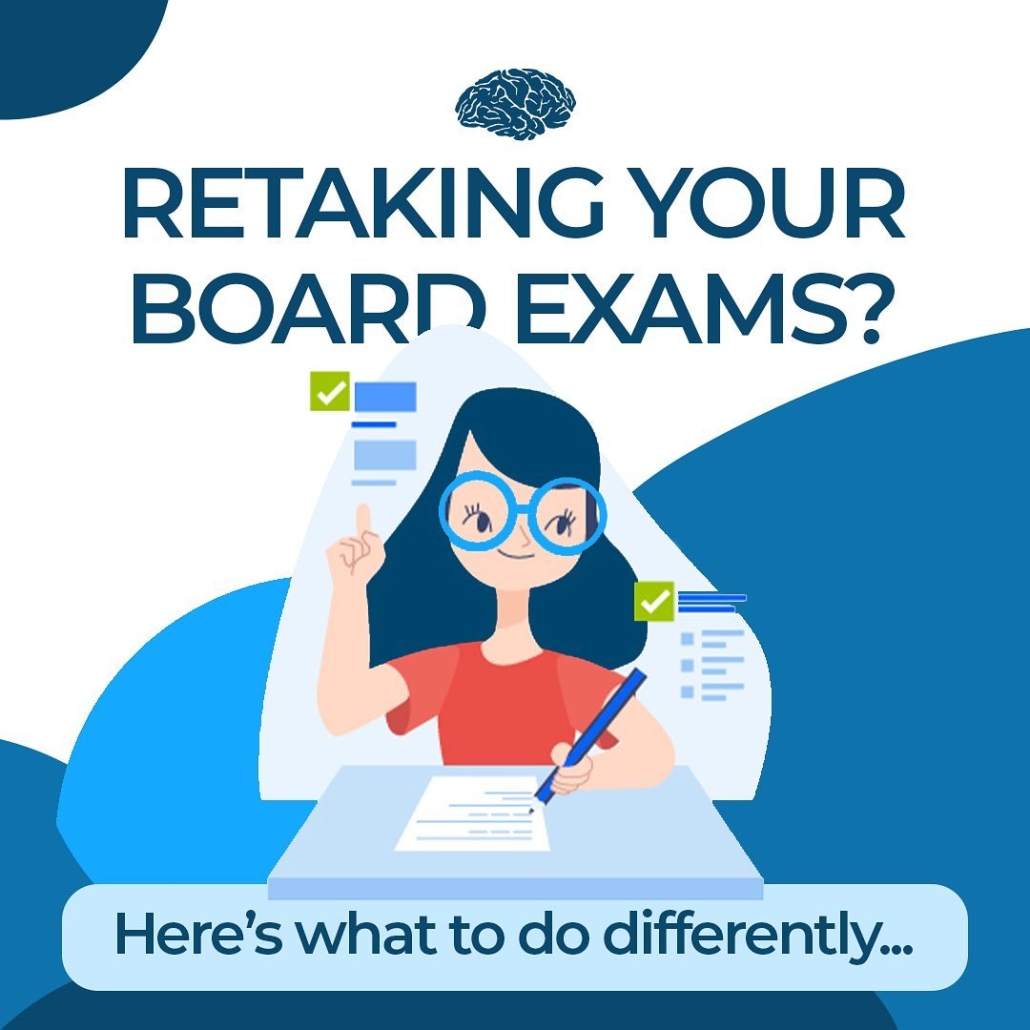The time has finally come… you’re locked in, ready to go, and you’re going to ace your retake exam. Why? Because you’ve followed our TOP 5 tips that ensure your success in passing your Psychiatric Board Exam with ease!
1 – Analyze Your Weak Points
If you know where you struggled with most in the last board exam you can hone in on intaking as much information as you can retain. These don’t need to just be areas you did pool on previously, but could also be ones that could be further reinforced. Try out My Psych Board’s customizable tests that zero in on your most missed questions!
2 – Focus On The NOW
The past is the past, there’s no point in going back! The only way to move in a positive direction is forward. Learn from your mistakes and how you can apply what you’ve learned for better-guaranteed results. If you stay focused on past failure it’s only going to bring negativity and additional stress to your study sessions.
3 – Create A Plan
When studying it’s essential to make the most of your time. Create a plan tailored to your needs. Before you can even begin studying you need to make sure you have all the resources you need. Organize items into folders, check you have all the materials you need, and tidy up your study spot.
4 – Utilize Detailed Questions Banks (like ours here)
With detailed Q-Banks, you’ll get the blueprints, questions, detailed information, vignettes, and more! Within the question breaks, you can get real-time feedback on correct answers, and learn where you’ll need to continue to improve.
BONUS TIP: Did you know we offer FREE Trials of all of our Question Banks? Click here to try today (with no credit card required…)
5 – Take Regular Breaks
As with anything don’t overdo it, You need to ensure you aren’t pushing yourself too far! When you’re studying and preparing for the exam you’re taking a mental health break. This will help break up your studying time, keep you from feeling overwhelmed, and ensure you’re retaining all the information you’re taking in.
Still, feeling uneasy? Contact us and we can help YOU pass your boards with ease!




Our Top Tips: How to Survive Your Psychiatric Residency!
/in General, Health and WellnessOk, hear us out for a minute… Surviving your residency is easier than you think.
YES, of course, that’s a loaded statement… NO, we aren’t saying it’s not incredibly challenging (because it is…) but we promise you’re overthinking it. You CAN do this. You may have heard horror stories or that it was the worst moment of someone’s life but let’s be real.
It shouldn’t be.
Thousands before you have done it and thousands after you will do it too.
How you handle it makes all the difference in what you’ll get out of your residency. Here are 5 TIPS on how to survive:
#1 HAVE A POSITIVE MINDSET…
Before you begin anything, you should always go in with the correct mindset. If you think things are going to be horrible…then they will be! But if you go in understanding that there will be both highs and lows, you’ll be better prepared to face them.
#2 HAVE A GREAT SUPPORT SYSTEM…
This goes with most things in life. The company you keep will help get you through hard moments. That’s what friends are for. But this support system should also be those around you too! Other residents know what you’re going through, so be sure to include them. It helps so much!
#3 DON’T NEGLECT YOUR MENTAL AND PHYSICAL HEALTH…
We’ve said this before and we’ll say it again: Take care of your mind AND body! Don’t bottle things up, talk to your support system, and get further help if you need it. It’s a challenging time. Outside of this, being active works WONDERS. Your body will thank you.
#4 IT’S OK TO SAY “I DON’T KNOW” (DO IT MORE!)…
You don’t know everything (that’s why you’re here). Don’t be a “know it all”, it can come back to hurt you. If you’re asked something and you’re really unsure, say that! Saying I don’t know will help you get the answers you need. Don’t feel silly. You’re learning!
#5 IT GETS BETTER…
It will get better!!! The start can be overwhelming and a lot to take in, but use that support system. Once you get in the groove, you’ll start to feel much more relaxed. Give it time. It’s long, draining, and emotional but there are perks. They may not last long but the amount of information and experiences you’ll take away from it, in the end, is all worth it.
You got this, you can survive… you can thrive!
Still, feeling overwhelmed?
Contact us and let’s talk through it together.
Getting the facts straight: Truth and LIES about the USMLE Exam
/in Board PrepWhen preparing for the USMLE Exam it’s important to get the facts right.
First, Let’s sort out the USMLE LIES…
❌ The more you put off your test and study, the better your score is going to be.
Studies show that cramming can actually be hurtful. Med school is a full-time job and you need to manage your time wisely. You should study alongside your course work AND practice practice practice… But if you take too long and say you’re not ready, you may lose info that you focused on months or weeks back.
❌ Using as many resources as you can leads to a better score.
This will just flood your brain with info. The most ideal way to study is by using practice question banks that imitate real-life tests. While everyone had various study methods, research shows that the Practice Q-Banks hold higher retention than lectures or reading combined.
❌ Practice Question Banks are all the same!
NOPE. You want to ensure you’re not just getting the information correct but that it matches the real-life test. Many question banks are NOT formatted properly and will only just feed you endless information… Thankfully, our USMLE question bank is formatted to get the most out of your learning experience. Studies have proven members who use formatted practice q-banks have a much higher score/pass rate.
NOW, Let’s get the TRUTH right so you can pass your USMLE With Ease!
✅ The more practice questions you study with, the higher your USMLE Score will be.
As we covered before about the Pract. Q-Banks, you want to ensure you’re studying with resources that will benefit you. They say practice makes perfect and this is 100% true!
✅ There is no “one perfect way” to prepare for the USMLE Exam.
Find a study plan and create one that works for YOU. Everyone is different so don’t listen to the noise others spew about how YOU should be studying.
✅ With the right study plan, you will pass!
This goes with any test and we’ve covered it before, put in the work, create a plan, and dive in. If you’re prepared it’s almost impossible to fail.
_____
We hope this helps! What other lies or statements have you heard? DM or Contact Us to let us know. We love hearing your feedback!
The ABPN Exam Blueprint and Format Broken Down
/in Board Prep, StudyingIf you’re walking into your ABPN exam unsure of what’s to come it can just complicate and add stress to the process.
Two of the most common questions we get are…
“How is the Psychiatry Certification Exam formatted?” and “Are there any breaks during the Exam?”.
We are here to break it down and walk you through the process!
Let’s start out with breaks!
Naturally, when taking an exam that’s 425 questions across 8.5 hours, we can’t imagine not being able to take a moment to collect your thoughts. Due to this, you’re given some time for yourself.
The exam is broken up into 8 total sections and after completion of each, you’ll have the opportunity to take a break. You’re allotted 60 total minutes of break time and you can choose to use as little or as much time as you wish.
So what happens if you use up all your break time?
You won’t just be forced back into the exam and can choose to keep taking as much time as you need (outside of your 60 total minutes). With that said, note that any time outside of your 60-minute time frame will be taken from your exam time. You are expected to manage your pace and timing of the exam. The optional break sections are part of the pooled break time. Once taking a break, a proctor must log candidates in after breaks. Candidates must be signed in and out each time they enter and leave the testing room.